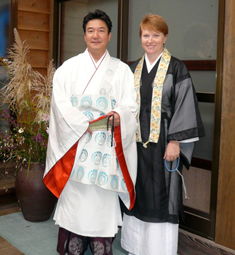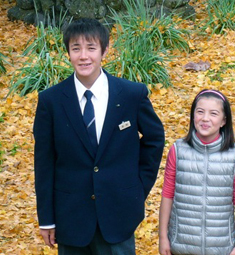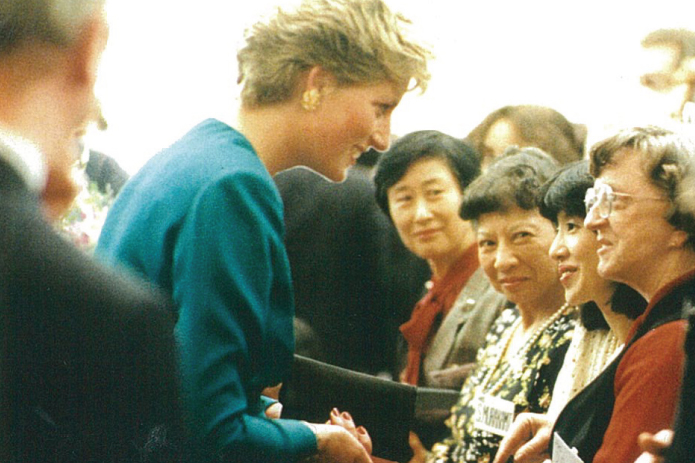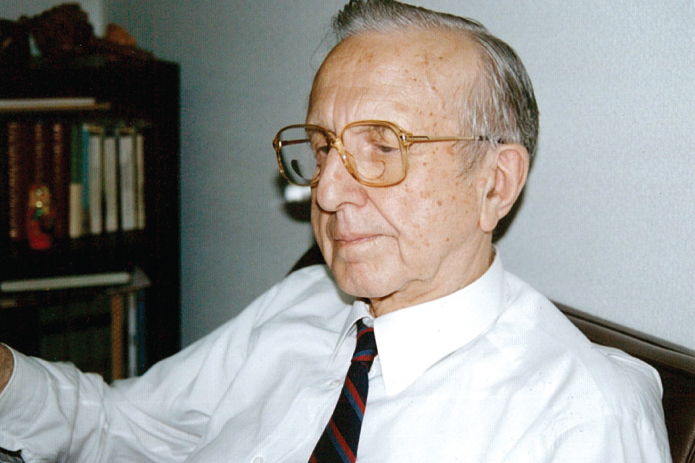
Victoria Yoshimura manages a temple, three children and entrenched attitudes. Most days at the 430-year-old Jodo Shinshu temple start at 4:30am. Husband Junsho is the 17th generation of his family to serve as head priest of the temple.
Ex-JET from Peterborough becomes Miyazaki priest
• Overcame fierce family and community resistance
• Love conquers: foreigner fails to “sully family bloodline”
• Now a fully qualified “vicar” herself, with three children
By now, Victoria Yoshimura expected to have a successful career in public relations or marketing for a multinational in London. Instead, she puts in 18-hour days, seven days a week as bo-mori, or spouse of the head priest, at historic Jodo Shinshu temple in Kyushu.
But, she says, there are quite a lot of similarities between the two careers. “I do a lot of event management here, I am always coming up with ideas on how to market the temple, our mausoleum—where we are selling lots, by the way—and giving speeches”, she said.
Add to that her language classes at nine schools in and around Takachiho-cho, funeral and memorial services, ensuring that the temple and family home are clean and maintained, and caring for their three children, and it is clear why she has to get up at 4:30am most mornings.
Yoshimura, 41, arrived in Japan to teach on the JET programme in July 1992. A former literature student at the University of Southampton, she admits she knew nothing about Japan before she accompanied a friend to a seminar on teaching in Japan. But, two weeks after graduation, she began work in rural Miyazaki Prefecture.
She met her husband, Junsho, in her second year at the local high school, but had to overcome a great deal of opposition to their relationship, both from the community and his family. Part of the problem was that Junsho is the 17th generation of his family to serve as head priest of the 430-year-old temple.
“His family did their utmost to thwart us”, Yoshimura said. “This is an extremely rural area with very narrow thinking, and it was actually suggested that mixing the races would result in a deformed child.
“This area is famous for its beef cattle, so they are obsessed with pedigree and bloodlines”, she explained. “I was told that my foreign blood would sully the Yoshimura blood-line”.
They persevered, however, and eventually married in 1995. One reason her in-laws gave in on the union was that Junsho is 12 years older than his wife and there is a shortage of unmarried women in rural Kyushu.
“And no-one in their right minds wants to marry the oldest son of a temple, even a good-looking one, so the family and the congregation feared that if they said no to me, then no-one else would step forward”, she said.
Seventeen years on, Yoshimura says she still feels the fall-out from not being Japanese, but she has thrown herself into the life of a temple priest’s wife with as much energy as she can muster.
They have three children: Reo, 15, is a member of the high school kendo team and marked as the next chief priest of Jodo Shinshu temple; Renni, 13 is the “spare” heir, and daughter Sahara, 9, is at the village school.
As well as raising a family and handling entrenched local attitudes, things became even more difficult when Yoshimura’s husband was diagnosed with two separate cancers and had to undergo a series of operations.

Two of the couple's three children Reo and Sahara
And while Yoshimura remembers it as a terrible time, she considers herself fortunate to have already passed the qualification to become a priest herself and be able to take on the extra work at the temple.
“It was baptism by fire”, she said. “I had to do my first memorial service when my daughter was two months old, and it was not just one, but three on the same day. As she was breastfed and the memorials were in peoples’ houses, I was rushing around like a headless chicken, running back, ripping off my robes, feeding the baby, then rushing off out again.
“My husband’s illness made me realise that I had to find solutions, I couldn’t just depend on him. I had to step forward and take up the slack. I couldn’t just sit there and feel sorry for myself.
“And I was constantly faced with the reality of [the question,] ‘What would I do if he died?’ Would I throw in the towel and go back to the UK? And the answer would be no. I have a role here, a job, a house and my children only know this way of living. And there is not much call for Jodo Shinshu priests in Peterborough”.
Her husband has recovered, but Yoshimura has continued her studies in case the worst should happen.
She has completed both the basic ordination (tokudo) and the higher kiyoshi level, which makes her roughly the equivalent of a vicar. It is also a very rare qualification for a temple wife. In addition, Yoshimura is considering obtaining the fukiyoshi qualification, which is that of a preacher who specialises in spreading dharma and going to other temples as a guest speaker.
She says she misses pub gardens in the UK, as well as Marmite, sage and onion stuffing, pickled onions, respect for women and hot water in the washing machine, but says the temple has given her opportunities she previously would never have dreamed were possible.
“If I was just a random foreigner, either single or married to a standard salaryman, I don’t think I could have achieved so much”, she said. “I am using the opportunities which have been presented to me.
“Personally, I try and look for a little bit of joy in each day. Who knows, I might be dead tomorrow.
“I think it is important to always have a sense of humour”, she added. “So much madness surrounds us here in Japan—it’s how to learn from this and create a smoother, easier life.
“In Jodo Shinshu, this is focusing on the nenbutsu”, she said. “Nenbutsu, in a nutshell, is the joy of realising that you don’t have to spend your time hitting your head against a brick wall. You cannot change it. If you let it go, then you can refocus on what you can do.
“I have to remind myself of this time and time again”.



